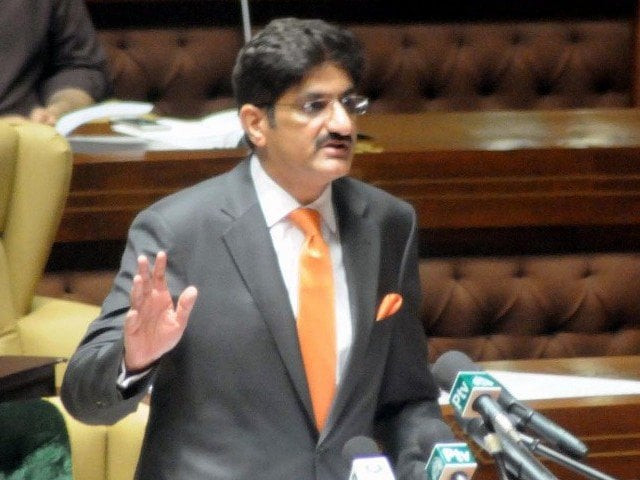Sindh cabinet moves against baseless arrests
Changes police rules to deter detentions made merely on basis of FIR

The Sindh Cabinet, approving amendments to the Police Rules 1934, aimed to stop law enforcers from arresting accused persons merely on the basis of the registration of an FIR.
The cabinet made the decision due to the widespread violation of human rights and increasing incidents of people being held in police confinement without any proof.
The cabinet meeting, chaired by Sindh Chief Minister Murad Ali Shah, made a few other decisions, including handing over four hospitals of the Karachi Metropolitan Corporation (KMC) to the provincial government and approved a law to stop violence by mobs at health facilities.
Giving details of changes to the police rules, the Sindh Information Minister Syed Nasir Hussain Shah said that the Police Rule 26 has now been amended to stop the victimisation of innocent people.
"After the amendment, it will be mandatory for police officers to collect credible evidence of the involvement of the accused in a crime," he said.
He added it would also be necessary to seek the approval of a senior officer before making an arrest. The minister believed the amendment would result in the end of police arresting people unnecessarily.
"Most of the cases are registered in haste and police fail to bring concrete evidence. So, today, the cabinet expressed concern on the grave violation of human rights and approved the amendment in the rules," he said.
According to the CM's spokesperson, the cabinet meeting, attended by ministers, advisors and special assistants to the chief minister, also decided to hand over four KMC hospitals to the provincial health department
The health facilities that would be given to the Sindh government administration, with their staff, included Gizri Maternity Hospital, Sobhraj Maternity Hospital, Gazdarabad General Hospital, District South and Landhi Medical Complex in Korangi district.
According to officials, the KMC spends around Rs800 million on the operation of these health facilities, but could not operate them properly due to financial constraints.
The health secretary reportedly informed the cabinet members that KMC could not even pay salaries to the employees on time. Therefore, a decision was taken, with consent of KMC, to hand over these health facilities.
Sindh Chief Minister Syed Murad Ali Shah said that the provincial government would not take Rs800 million from KMC for running its hospitals, but his government would give an additional Rs603.158 million to the health department to operate the KMC hospitals to provide the best health facilities to the people of the area.
Violence in hospitals
The provincial cabinet, in order to provide protection to health workers and prohibit violence against service providers, passed the Sindh Healthcare Service Providers and Facilities (Prevention of Violence and Damage of Property) Bill 2021.
The law clarified that attendants would not be allowed to assault, harass or manhandle a medical officer or staffer on the pretext of their patient being neglected or being provided the wrong treatment.
Reduction in Cotton Fee
The Agriculture department told the cabinet that the cotton fee has been increased from Rs10 to Rs20 per 100 kg from 2019. It was pointed out that the Punjab government was charging a cotton fee at Rs10 per 100 kg. The cabinet, after detailed discussion, reduced the cotton fee from Rs20 to Rs10 per 100 kg. It may be noted that the Excise & Taxation department collects cotton fees.
Reflective Number plates
The Excise & Taxation department gave a detailed briefing about the security featured petro-reflective number plates for all kinds of vehicles. The plates are to be manufactured by National Radio & Telecommunication Corporation (NRTC). The cabinet, after thorough discussion and deliberation, approved a proposal of the Excise department to negotiate with NRTC to procure security featured retro-reflective number plates for all types of vehicles, including two-wheelers, three-wheelers and four-wheelers.
The chief minister directed the excise department to expedite the matter so that security number plates could be issued to the vehicles in the province.
SST exemption
The cabinet was told that the NDMA has requested the provincial government to exempt the Storm Water Drain project from Sindh Sales Tax. The SRB had worked out that the exemption, if approved, would be around Rs1.2 billion.
The cabinet opposed the exemption request on the pretext that it would set a new trend. Therefore, the chief minister proposed that the project was being executed in the city, therefore the Sindh government should pay the SST amount on behalf of the NDMA.
Published in The Express Tribune, July 18th, 2021.



















COMMENTS
Comments are moderated and generally will be posted if they are on-topic and not abusive.
For more information, please see our Comments FAQ